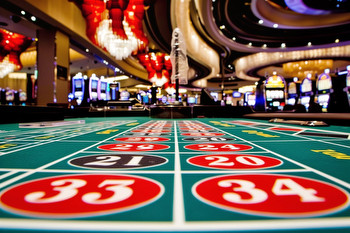How Psychology Shapes Online Casino Gaming

Online casino gaming has become increasingly popular in recent years, with millions of players worldwide logging in to play their favorite games. Online casino gaming is designed to be addictive, with features that are specifically created to keep players engaged and coming back for more. In this article titled How Psychology Shapes Online Casino Gaming, we will explore the psychology of online casino gaming and how it affects players.
The Role of Rewards and Reinforcement
Rewards and reinforcement play a significant role in the psychology of online casino gaming. The human brain is wired to respond positively to rewards, which triggers the release of dopamine, the feel-good hormone. This chemical reaction reinforces the behavior that led to the reward, making the individual more likely to repeat the action in the future.
In online casino gaming, rewards come in the form of payouts, bonuses, and other incentives. The anticipation of receiving these rewards can be exciting and motivating, causing players to continue playing even when they are not winning. The use of rewards and reinforcement is a well-known technique used by online casinos to keep players engaged and encourage them to play more.
It is essential to note that excessive reinforcement can lead to addiction and problem gambling. Some players may become so fixated on the reward that they lose sight of their limits and end up spending more than they can afford. Therefore, it is crucial for players to set boundaries and be mindful of their behavior while playing online casino games.
The Influence of Cognitive Biases
Cognitive biases are another crucial element of the psychology of online casino gaming. These biases are mental shortcuts that our brains use to simplify complex decision-making processes. While they can be helpful in some situations, they can also lead to flawed thinking and irrational behavior.
In the context of online casino gaming, some common cognitive biases include the gambler’s fallacy and the illusion of control. The gambler’s fallacy is the belief that past events can influence future outcomes, leading players to make risky decisions based on the assumption that they are due for a win. The illusion of control is the belief that one can control or influence random events, leading players to overestimate their skills and underestimate the role of luck.
These cognitive biases can lead to poor decision-making and cause players to take unnecessary risks, leading to significant losses. Online casinos may also use these biases to their advantage by creating an illusion of control or manipulating players’ perceptions of probability.
Therefore, it is crucial for players to be aware of these cognitive biases and take steps to avoid them. This can include setting strict limits on their gambling behavior and focusing on rational decision-making rather than emotional impulses. Additionally, online casinos can also take steps to promote responsible gambling and minimize the risk of problem gambling among their customers.
The Role of Emotions
Emotions play a significant role in the psychology of online casino gaming. The thrill of winning and the fear of losing can both trigger intense emotional responses that can influence a player’s behavior and decision-making.
For example, the excitement and rush of adrenaline that come with winning can lead players to become overconfident and take unnecessary risks, while the fear of losing can cause players to make irrational decisions and chase their losses. These emotional responses can create a cycle of reward and reinforcement, where the player becomes more and more invested in the game and seeks out more opportunities to experience those positive emotions.
Furthermore, online casinos may also use emotional appeals to attract and retain players. Bright colors, flashing lights, and exciting sound effects can create a stimulating environment that enhances the emotional experience of playing. Additionally, online casinos may use persuasive language and imagery to encourage players to make larger bets or continue playing, exploiting their emotional vulnerability.
While emotions can add to the excitement of online casino gaming, they can also lead to impulsive decision-making and problem gambling behavior. Therefore, it is crucial for players to be aware of their emotions and take steps to regulate them, such as setting limits on their gambling behavior or taking breaks when they feel overwhelmed. Online casinos can also play a role in promoting responsible gambling by providing resources and support for players who may be struggling with problem gambling.
The Role of Social Interaction
The role of social interaction is an important aspect of the psychology of online casino gaming. While online casinos may not provide the same level of social interaction as a brick-and-mortar casinos, they still offer various ways for players to connect with others. For example, many online casinos have chat rooms or forums where players can discuss their experiences, strategies, and tips.
Additionally, some online casinos offer live dealer games, where players can interact with the dealer and other players in real time. This can help to create a more immersive and social gaming experience, as players can chat and interact with each other during the game.
Research has shown that social interaction can have a positive impact on a person’s well-being and can also enhance the gaming experience in most of the top online casino platforms. By providing opportunities for social interaction, online casinos are able to create a more engaging and enjoyable experience for their players.
It is equally important to note that social interaction can also have negative effects, such as peer pressure and groupthink. Players may feel pressure to conform to the opinions or behaviors of the group, which can lead to poor decision-making and risky behavior. It’s important for players to maintain their own independent thinking and decision-making, even in social situations.
The Influence of Game Design
The design of online casino games can also play a significant role in the psychology of online casino gaming. Game developers use various techniques to make their games more appealing and engaging to players. For example, they may use bright colors, exciting animations, and catchy sound effects to create a sense of excitement and anticipation. They may also incorporate features such as bonuses and jackpots to incentivize players to keep playing.
Furthermore, game design can also influence how players perceive their chances of winning. Many online casino games use a random number generator to determine the outcome of each game, which means that every result is entirely random and unbiased. However, game developers may use visual and auditory cues to give players the impression that they have more control over the outcome than they actually do. This can lead to players feeling more confident in their abilities and more likely to continue playing.
Verdict
The psychology of online casino gaming is a fascinating and complex topic. From the use of rewards and reinforcement to the influence of cognitive biases, emotions, social interaction, and game design, there are numerous factors at play. It is essential for players to be aware of these factors and to gamble responsibly. By understanding the psychology behind online casino gaming, players can make informed decisions about their gambling habits and enjoy the games without becoming addicted. Remember to always gamble responsibly and only spend what you can afford to lose.



































